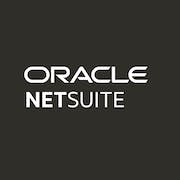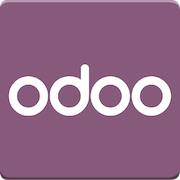Looking for the right CRM software? Our comprehensive buyer's guide can help you make the perfect choice. Compare top-rated options, features, and pricing to find the ideal CRM solution for your business. Click now to learn more.
Customer relationship management software is an essential tool for businesses of all sizes in modern times. It enables firms to build meaningful and lasting relationships with consumers through effective management of interactions and information.
Adoption over the last 10 years has increased dramatically, with SuperOffice seeing cloud usage increase from 15% in 2010 to 97% in 2020. It's not surprising considering Zoho customers reported a 300% improvement in their lead conversion rates thanks to their CRM platform.
However, with so many options available in today's market, selecting the most suitable customer relationship management software for your organization can be a daunting task.
This buyer's guide aims to address this challenge by providing a comprehensive overview of the key features, benefits, and factors to consider when choosing the right customer relationship management (CRM) tool for your operational needs. Whether you're a small business owner or a large enterprise, this guide will equip you with all the necessary tools to make an informed decision and select a CRM system that maximizes your brand's potential.
What is CRM software?
CRM software is a type of technology designed to help companies manage interactions with consumers and potential customers. It offers a centralized database that acts as the primary source of information for all customer-related activities. The software collects data from various channels, including emails, social media, and phone calls, among others. This information is then analyzed to provide valuable insights into consumer behavior trends and patterns. CRM platforms - whether an online CRM system or specific for the Mac operating system - boast a number of benefits due to their versatility and usefulness. Here are the most common use cases for CRM software include:
Streamlining communication
By automating communication between various departments and customers, CRM platforms can ensure that all important data goes to the right place. This reduces the risk of communication gaps and ensures a smooth workflow.
Managing consumer information
CRM software provides businesses with a centralized database where they can store and manage all shopper-related activities. This includes contact information, purchase history, preferences, and more.
Sales management
CRM software allows sales teams to manage the entire sales pipeline better. Sales reps can track their progress, identify opportunities for cross-selling, and monitor customer interactions to identify potential leads.
More sales
The right platform will allow sales representatives to personalize their approach with prospects, helping them close leads quicker. Built-in analytics features offer valuable insights regarding sales data, which can be used to optimize sales strategies.
Marketing automation
CRM software integrates with marketing automation tools, allowing businesses to automate their marketing campaigns. By segmenting customers based on preferences and behavior, companies can deliver personalized messages to their customer base.
Customer service and support
CRM software provides customer service teams with the necessary marketing tools to manage shopper inquiries and support requests. Sales and marketing teams can track consumer issues, respond to inquiries and monitor customer satisfaction levels.
Team collaboration
Businesses can also manage tasks and projects, distribute work to the relevant team members, and ensure deadlines are met. This ensures everyone is working collaboratively towards the larger business goal.
What is financial CRM software?
Financial CRM Software is a type of software designed to help companies manage their customer relationships in the finance industry. This type of software is specifically geared towards financial services such as banks, insurance companies, and investment firms. Just like standard CRM platforms, financial CRM software provides companies with a centralized location for all customer information, interactions, and transactions. The software enables users to see a complete view of the customer's profile, contact information, account balances, and history. With access to all this data, companies are able to personalize their interactions and tailor their services to the customer's specific needs. Financial CRM platforms are used for customer service and support, marketing, and sales. However, they often provide additional features in areas such as:
Compliance management
Fraud detection and prevention
Reporting and analytics
Account management
The types of companies that use financial CRM systems are typically large financial institutions such as banks, insurance companies, and investment firms. However, smaller financial businesses can also benefit from using the software.
Who needs a CRM platform?
CRM systems are used by businesses of all sizes, ranging from start-ups to established enterprises. This software is ideal for companies that want to manage their customer data effectively, streamline their workflow, and automate tasks. Businesses in industries such as real estate, finance, retail, and e-commerce are amongst the top adopters of online CRM software
It's widely used in various industries, including but not limited to finance, healthcare, retail, e-commerce and technology.
Companies that place a high value on customer experience and rely on customer interactions to drive their business, such as ecommerce retailers and subscription-based services, benefit significantly from using CRM software.
What are the benefits of CRM software?
Improving the relationships you have with current and potential buyers is a vital part of any successful organizational strategy - and that’s where CRM comes in. Used correctly, CRM can help you dramatically increase profits, improve customer satisfaction and streamline internal processes. Here are some of the key benefits:
Increased sales: A comprehensive CRM system allows brands to better understand their audience, learn their buying habits and preferences, so marketing teams can tailor sales and marketing efforts accordingly.
Improved customer service: CRM platforms provide businesses with a way to manage all customer interactions in an organized and consistent manner, ensuring that all queries or complaints are dealt with promptly and efficiently.
Enhanced marketing: CRM software enables businesses to create targeted campaigns based on customer segmentation and engagement metrics. It can also help track campaign performance, revealing what's working and what's not, leading to more effective marketing.
Better data management: CRM eliminates the need for manual data entry and analysis, freeing up employees to devote more time to high-value tasks such as customer engagement and retention.
More accurate sales forecasting: With access to more data, businesses can make more informed decisions about future revenue streams, allowing them to plan and budget more effectively.
Enhanced collaboration: By providing a single source of customer data that can be accessed by employees across different departments or geographical locations, CRM encourages collaboration and helps ensure that everyone is working with the same information.
Improved sales productivity: With CRM software, sales teams can easily manage their leads, track the sales pipeline, and close deals quicker. This can help to boost sales productivity, shorten sales cycles, and ultimately increase revenue.
Automation and streamlining: CRM systems automate many of the time-consuming processes associated with sales and marketing, freeing up staff to focus on other important tasks. By streamlining workflows, businesses can save time and money, and improve the overall efficiency of their operations.
In summary, CRM software is essential for businesses that want to grow and thrive in today’s competitive market. It not only provides a way to manage customer data but also enables businesses to develop deeper relationships with their customers, while improving business processes and driving increased profits.
What are the key features of CRM software?
CRM software is an essential tool for businesses of all sizes and across all industries. It allows companies to manage and analyze customer interactions and data throughout the customer life cycle. There are many different CRM software options available, each with their own specific features and benefits. Here are ten common features that you may find in many CRM solutions:
Contact management: The ability to manage and organize customer information such as names, addresses, phone numbers, and emails is critical, as it forms the foundation for building a comprehensive customer database.
Lead management: CRM software can help companies track and manage leads that can convert into prospects over time. This feature can help streamline the sales process to prioritize and develop leads to increase sales and revenue.
Opportunity management: Tracking of potential deals with prospects can be facilitated through this feature which helps the sales process by keeping track of meetings, proposals, and communication.
Sales forecasting: CRM software can help to forecast sales based on the data stored within the database. This feature is particularly useful for businesses looking to make informed decisions based on accurate sales predictions.
Marketing automation: This feature helps businesses to automate marketing tasks, such as email campaigns and social media posts. It also helps to track customer behavior and develop targeted campaigns to improve engagement.
Analytics and reporting: The ability to generate reports and dashboards that highlight important metrics such as lead conversion rates, customer lifetime value, and sales trends can help businesses to make informed decisions.
Customization: Every business is unique, and a good CRM tool allows for customization to meet individual needs. This feature can include the creation of custom fields, workflows, and dashboards.
Collaboration: Collaboration across internal teams is necessary in many businesses. CRM software can aid in communication and collaboration by providing a central location for team members to work.
Mobile capability and cloud access: With the increase in remote work situations, having a mobile app that is compatible with different devices can help the teams access data from anywhere without restrictions. It's also important that the main application is hosted via the cloud to facilitate regular, live backups of data and enable employees to access the platform data anytime, anywhere with cloud-based storage and synchronization across devices.
Integration: It's important for businesses to be able to incorporate data from different systems into their CRM. As a result, integrating with other systems, such as a business's email or chatbot service, are crucial. Social media platforms are also a key channel to integrate into a CRM platform, giving businesses a chance to interact with customers in real-time on social media while being able to track engagement and sentiment.
Customer interaction management: As well as being able to integrate with real-time data, a CRM system helps you to engage with your customers and collect that data into one single location to provide real-time feedback and interaction options.
User management: Role-based user access and permission-based data sharing with your team members to ensure information privacy and security.
Overall, CRM software has become an essential tool for companies looking to manage their customer interactions and data effectively. With features such as contact management, analytics and reporting, and marketing automation, businesses can make informed decisions to improve customer experience, drive sales, and increase revenue growth.
What should you consider when assessing CRM solutions?
CRM software is becoming increasingly popular among businesses of all sizes. It helps manage interactions between a company and its customers, streamlining communication and facilitating better relationships. However, the process of choosing the right CRM software can be overwhelming, especially for those who are new to the technology. In this article, we will highlight the factors that businesses should consider when purchasing a CRM software.
1. Business needs
Before making any purchase, it’s important for businesses to determine their needs. This means outlining what they hope to achieve with CRM software, as well as what features are most important to them. There are a variety of CRM systems out there, some of which are designed for specific industries or functions such as sales, marketing, or customer service. Therefore, it's essential to choose a CRM tool that aligns with your business's objectives and is tailored to the specific needs of your industry.
While some businesses may prioritize lead management, others may prioritize marketing automation and this too will impact the solution you choose. Taking the time to understand these needs will help you choose a CRM solution tailored to your requirements.
2. Customization
Every business is unique in its own right, with specific requirements and workflows. The best CRM software must be customizable to meet individual business needs and requirements. In this regard, it is important to choose a solution that offers customization features such as custom fields, data integration, and tailored dashboards.
3. Ease of use
One of the most important factors to consider when selecting CRM software is its ease of use. Is it visually compelling and adaptable? Does it have a high adoption rate? Employees who use the CRM system regularly should feel comfortable with its interface and enjoy using it, while poor user adoption rates will negatively impact the ROI on your investment.
The software shouldn't require extensive training. Time is money, and employees can't waste hours trying to figure out complicated software. An intuitive interface, easy navigation, and comprehensive help documentation can help employees learn and use the software easily. If the software is too complex or difficult to use, employees may avoid using it, defeating the purpose of having it in the first place.
4. Scalability
As businesses grow, so do their needs. When purchasing a CRM software solution, it’s important to consider the software's scalability. A company may start small with just a few employees, but as the business grows, the number of employees, and customers increases. A CRM system that can scale with the business is crucial, so companies don’t have to switch to a new system when they've outgrown the current one.
5. Integration
Another essential factor to consider when purchasing customer management software is integration with other applications such as accounting software, ecommerce platforms, and marketing automation software.
Your CRM system will be more powerful if it can integrate with other business software you utilize, such as marketing automation tools or ERP software. The CRM tool's capacity to communicate with these systems will allow your employees to save time and minimize duplication of effort.
6. Mobile capabilities
In today's digital age, employees need to be able to access their work on-the-go. The best CRM software should have a mobile app available that is specifically optimized for smaller screens. This way, employees can easily access customer data from a mobile device, respond to customer requests, and receive important notifications.
7. Reporting and analytics
Consider how well the reporting and analytics capabilities can be tailored to your organization's specific requirements. You also want to look for reporting and analytics that are easy to understand and utilize by employees with varying levels of technical proficiency.
8. Security
As with all platforms, security is a crucial factor. Your CRM software should be compliant with industry-standard security protocols and ensure the safe storage of customer data.
9. Cost
The final consideration is the total cost of ownership. What does the pricing model look like? Will it create vendor lock in or is it scalable as the company's needs change? The software's pricing model should be transparent, and businesses should be aware of any additional costs, such as customization, training, or support. Businesses should also take into account the long-term costs, such as maintenance, upgrades, and licensing fees. In conclusion, when selecting CRM software, businesses need to think about their particular needs and requirements, customization capabilities, ease of use, scalability, integration capabilities, and mobile app capabilities. By taking these factors into account, businesses can choose a customer relationship management solution that meets their objectives and helps them foster long-term relationships with their customers.
The biggest trends in CRM software
The world of CRM software is constantly evolving, with new trends emerging each year. In 2023 and beyond, we can expect to see even more exciting developments in the CRM space. From AI and automation to advanced analytics and personalization, the following are the biggest CRM software trends to watch out for:
Artificial intelligence (AI) will continue to rise in prominence, enabling businesses to offer personalized experiences at scale. With AI, companies can analyze customer data in real-time, providing relevant insights that help predict future behavior.
Automation will become even more critical, freeing up sales teams to focus on higher-level tasks. By automating repetitive tasks, such as data entry and lead follow-ups, sales teams can devote their time to more pressing matters.
Advanced analytics will become more accessible, enabling businesses to gain a deeper understanding of their customers. With advanced analytics, businesses can identify trends, make data-driven decisions, and track the success of marketing campaigns.
Integration with voice and conversational UI is also becoming popular, allowing sales teams to communicate with leads and customers more effectively.
Personalization will become increasingly important. With customers becoming more demanding, personalization is vital to keeping up with their expectations. CRM systems will need to offer more personalized experiences to stay competitive.
Omnichannel communication will become the norm. With customers interacting with businesses through multiple channels, CRM systems need to be able to handle and integrate data from all touchpoints.
As social media platforms continue to grow in popularity, businesses are realizing that they need to be able to monitor and engage with their customers on these platforms. Look for CRM software providers to offer more robust social media integration and analysis tools to help businesses keep tabs on what their customers are saying on social platforms such as Facebook, Twitter and Instagram.
Overall, the CRM landscape looks set to become even more exciting in 2023 and beyond. To stay ahead of the curve, businesses will need to adopt the latest technologies and trends to meet the ever-increasing demands of their customers.








